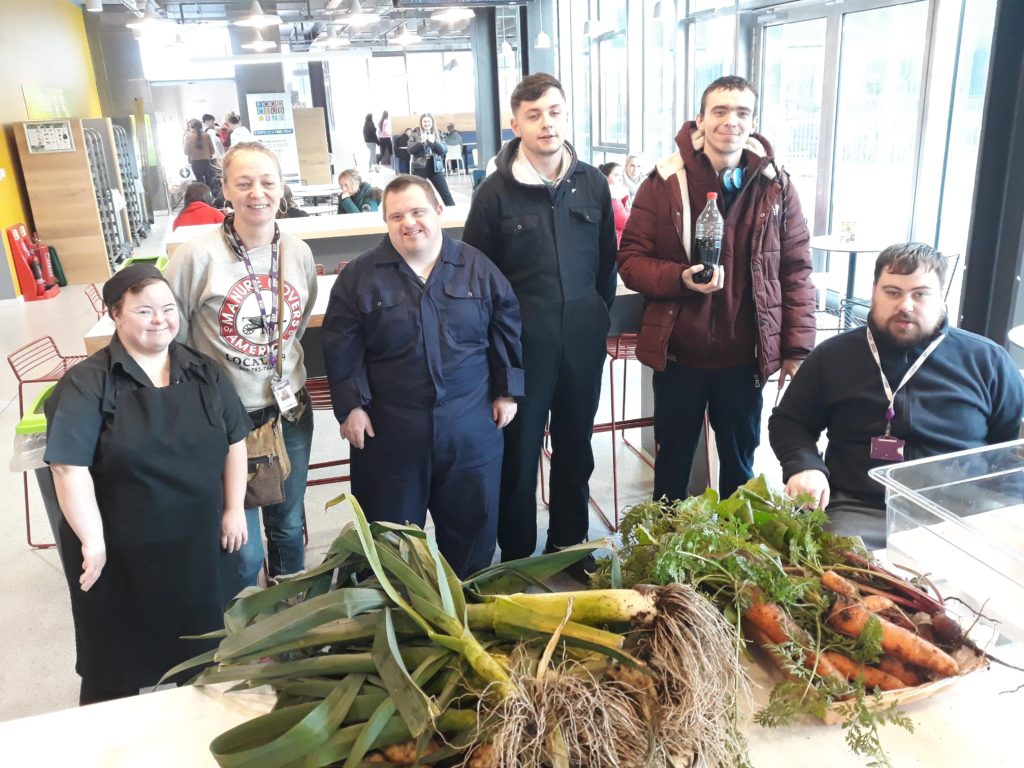
In celebration of National Allotment Week, we caught up with Chris Bryden, chef manager at City of Glasgow College (COGC) and BaxterStorey, the UK’s largest independent food service provider, to discuss why allotments are the secret to a sustainable future.
We’ve had the allotment for over five years now, and we intend to keep it for as long as we can.
The aim was to create a productive plot, where I could grow herbs and vegetables to use as ingredients in our recipes.
Not only do our customers benefit from the fresh produce, but the students do too.
We work in collaboration with CityWorks students here at COGC, an NQ course designed for students with additional support needs, where we help them to plant, pick and harvest the produce, maintain the allotment and get involved in all the weeding; teaching them about the importance of locally sourced ingredients.
We recently ran a cooking demo for the students to get involved in, where they picked, chopped and cooked the veg they had grown.
It’s so much more than just growing your own veg.
We have all sorts. On the fourth floor, we have a thriving organic vegetable garden and an incredible greenhouse made from recycled plastic bottles, which houses everything from leeks and potatoes to tomatoes.
We also have a herb garden that gets lots of use.
My team uses the herbs and vegetables to make soups for the students at the college and we often donate surplus veg to them to use in their cooking at home or for the cookery students.
We also supply veg boxes to Al Clachan Café in Kelvingrove and there are plans to supply the local community in the future.
The seventh-floor garden is an orchard, with apple, cherry, plum and nut trees.
We also grow blackcurrants, blackberries and artichokes.
We hope to grow mushrooms using coffee ground waste, and next year our aim is to establish bee hives which will pollinate the fruit trees and produce local honey.
As part of the Glasgow Community Food Network, the gardens offer practical opportunities to teach the students about sustainability and climate change, as well as horticulture and cookery.
We use the herb garden to train the students on the benefits to growing your own, which gives me that sense of joy and self-satisfaction.
Not forgetting physical exercise, better quality produce, growing what you like to eat, and you can use the time to switch off and relax.


Early 2020, we introduced ‘the rocket’, BaxterStorey’s first onsite composter.
None of our food waste or used coffee granules get thrown away, it all goes into the rocket to produce compost that goes back into our on-site garden.
With the ability to now compost an estimated 26 tonnes of food waste on site each year, our composter and gardens are going a long way to help the COGC meet its environmental ambitions.
Our wasted coffee granules are used in the garden to educate students in how to make natural fertiliser and are also available for students and staff to purchase to take home for their own gardens.
All funds received are donated to a homeless shelter in Glasgow.
In partnership with the Students Association, we asked all students and staff to donate their empty plastic water bottles by placing them into the designated drop off bin points.
The plan was to build our own greenhouse in the college garden using these water bottles, to produce home grown produce. 1600 Strathmore bottles were used and 13 students from carpentry, joinery and assisted learning helped to construct it.
As part of the project, 5000 reusable water bottles were given out from the Students Association.
I think it’s safe to say we were deserving of this year’s CIS Excellence Healthier Scotland Award.


